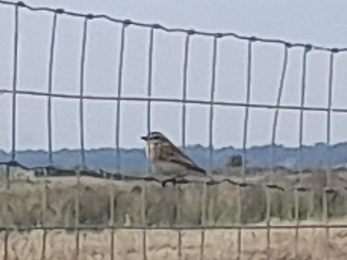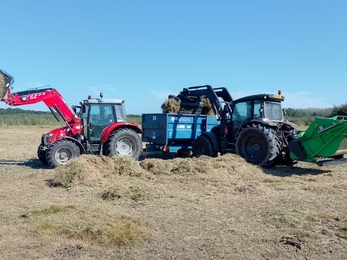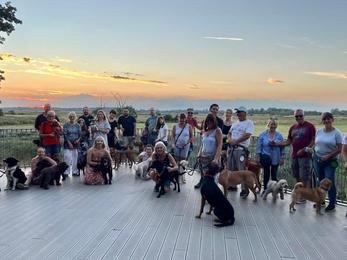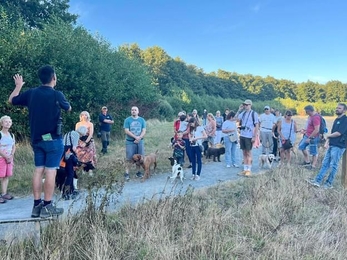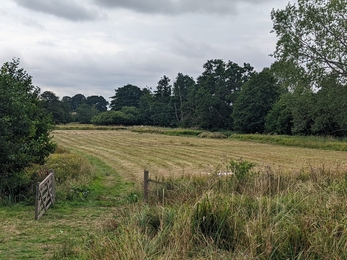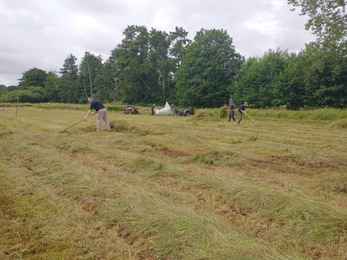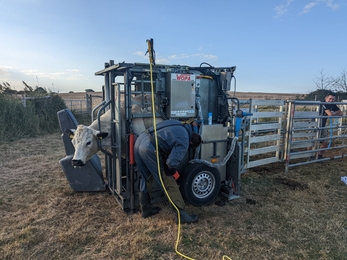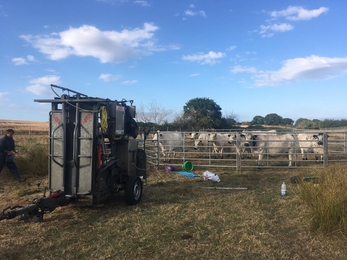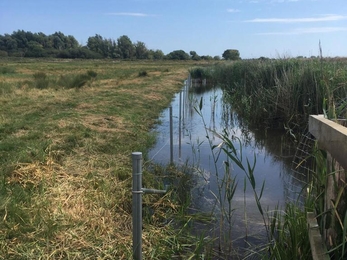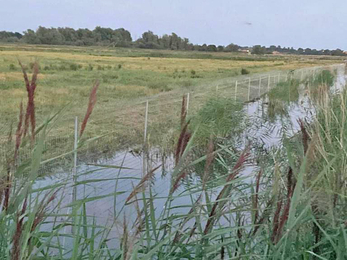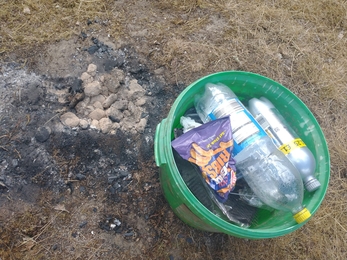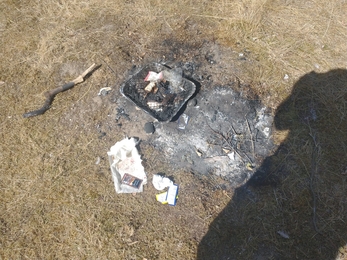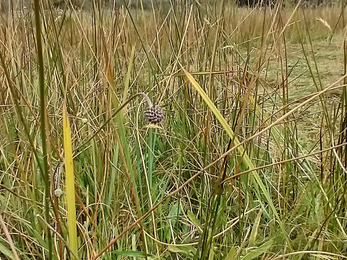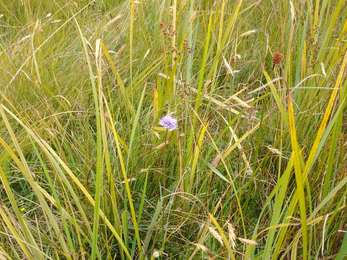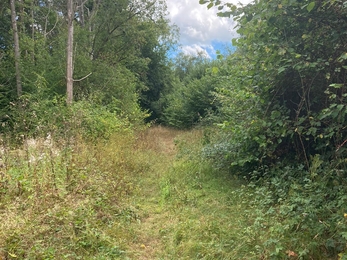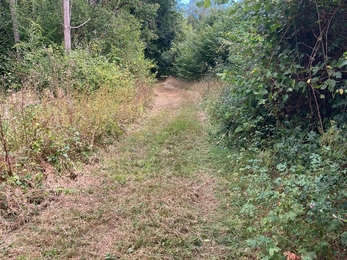Weekly wild news from our reserves - 26 August 2022
Darsham Marshes annual cut - Jamie Smith
Visitor Graham Smith took these beautiful photos of wasps and bees at Lound Lakes this week.
Trimley work party and whinchat visitor
Our wonderful volunteers and staff have been busy mowing and clearing the lagoon islands and margins this week. The combination of cattle grazing and mowing creates ideal conditions for overwintering migratory duck and geese species, which feed on the short grass sward or eat small seeds floating in the lagoons, depending on their feeding preferences. The milder winters in the UK make our wet grasslands an essential food resource for birds coming from colder regions where food becomes very scarce.
Warden Joe Underwood also spotted this whinchat on the reserve this week. Whinchats are summer and passage migrants, wintering in Africa. They look like stonechats but are lighter in colour with a distinctive pale eye stripe.
A big thank you to our dog ambassadors!
New members of Happy Paws Dog Training Society joined the wardens at Carlton Marshes to learn about what being a responsible dog owner means to wildlife and other users. We talked about policy, PSPO fines and how they can help across the suite of reserves by being a dog ambassador volunteer. A big thank you to our amazing dog ambassador volunteers at Carlton Marshes, whose contributions have meant dog disturbance to wildlife has been at an absolute minimum this summer. Click here for more information about dogs on our reserves and how to become a dog ambassador.
Latticed heath
This pretty latticed heath moth was spotted by warden Rachel Norman at Snape Marshes this week. Latticed heaths are day flying moths and their caterpillars feed on clovers, trefoils or alfalfa.
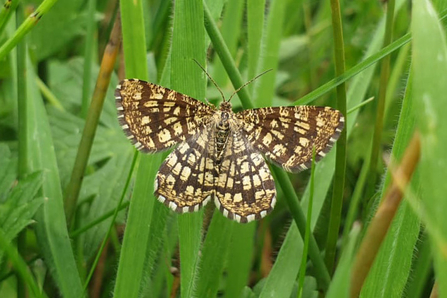
Latticed heath moth at Snape Marshes - Rachel Norman
Darsham gets a trim
The North East Suffolk wardens and volunteers teamed up to give Darsham Marshes’ fen meadow its annual cut and rake. An annual cut to remove the current season’s growth is vital to maintain the floristic diversity. A great effort by all!
Healthy hooves
The North East Suffolk team worked into the evening again when our conservation grazing cattle had a visit from The Foot Trimming Kiwi this week. Foot health in cattle is very important, and especially crucial during these hard ground conditions. We are pleased to say all the girls got a thumbs up from the foot doctor, with no big issues!
Anti-predator fencing
The team at Carlton Marshes has begun to install anti-predator fencing on the dykes of Peto’s Marsh, which will help to reduce the predator pressure on breeding waders.
Tagged harrier on the move
This marsh harrier which was tagged in June at Castle Marshes has been spotted at Spurn in Yorkshire for the first time since dispersing the area.
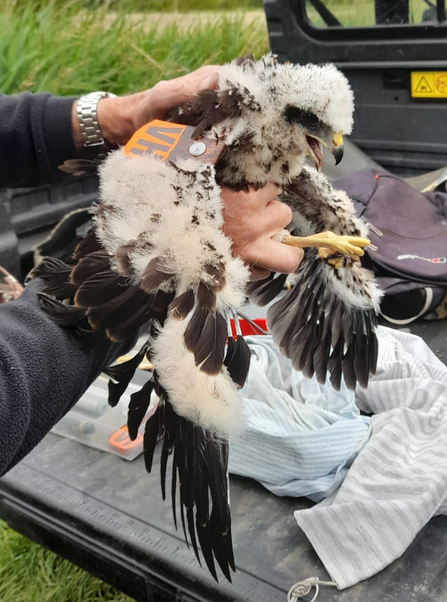
Marsh harrier tagged on June 29 2022 at Castle Marshes – Gavin Durrant
Fire fury
The North East Suffolk team were angry to find the remains of yet another fire and rubbish strewn around at Church Farm. Our nature reserves are extremely vulnerable to wildfires during the hot dry weather, and we are extremely disappointed that this continues this behaviour continues, despite repeated news about the dangers.
Flora rich fen
Broads Warden Lewis Yates has been cutting around Sprats Water at Carlton Marshes, which is essential to maintain the floristically rich fen habitat. An area has been left uncut to allow late flowering species like Devil’s bit scabious to seed.
Reydon rides cut
Assistant Warden Frances Lear cut the rides at Reydon Wood this week. Rides are wide grassy tracks that provide light for woodland wildflowers to flourish and areas for insects such as butterflies to feed and breed.





